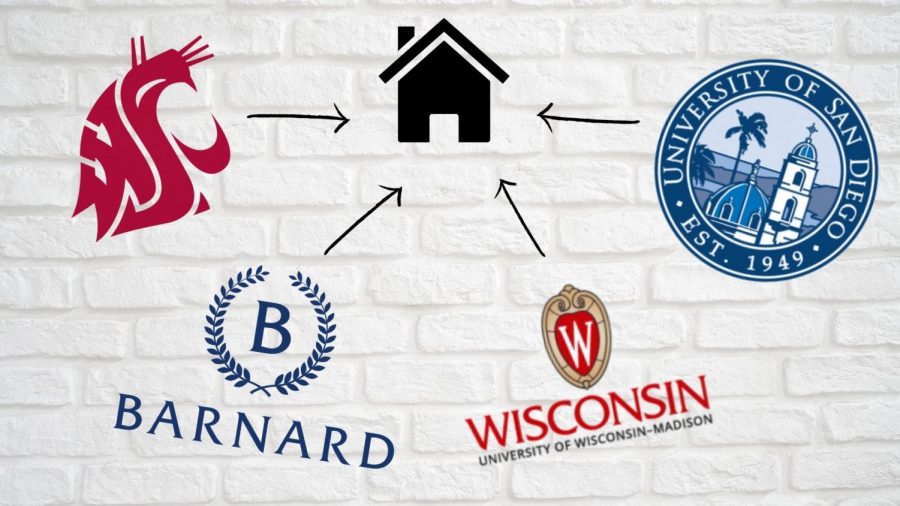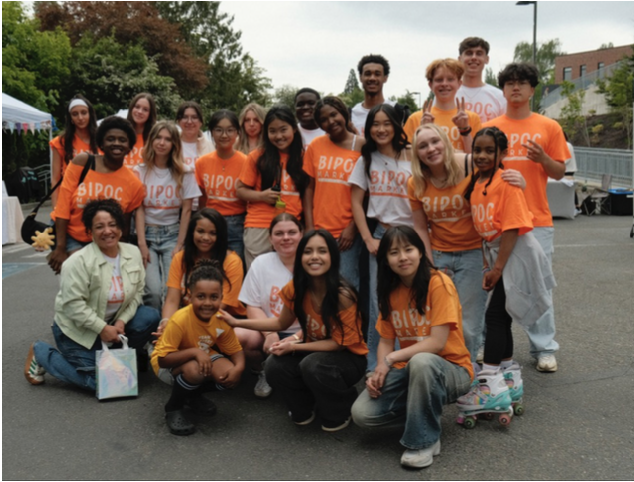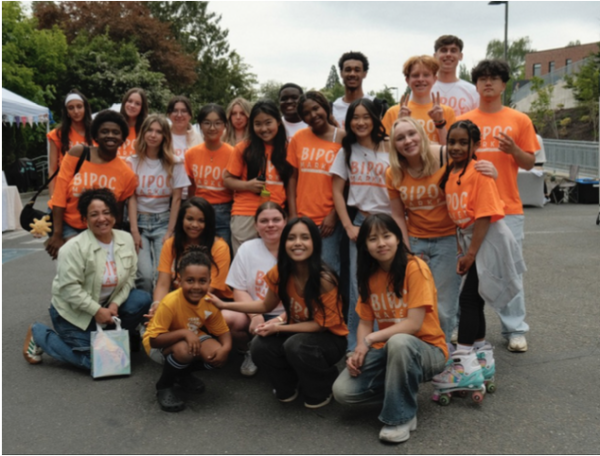Annie Wright Alums Feel the Effects of the Pandemic as They Return Home
photo courtesy of Julia Henning
For most students, the announcement for moving out of their college dorms was on very short notice.
May 13, 2020
When the COVID-19 pandemic caused many institutions to close down across the US, university students were no longer allowed to stay in their dorms or on their study abroad programs, and many had to move home or stayed in their off-campus housing. Here are four unique stories from Annie Wright alums that shared this experience and how they are planning for their futures amidst a pandemic.
Lexy Sullivan – Barnard College
Lexy Sullivan (‘17) started her virtual learning experience fairly early in March after there was a suspected case of COVID-19 within the Columbia community. The school transitioned to online learning for two days to make a plan the week before spring break, but ultimately made the decision to continue with online class through the rest of the year after spring break.
Sullivan was planning to stay in her New York apartment, but while New York was quickly shutting down, she made the decision to come home on March 18. Because she stayed through spring break, she was able to bring most of her belongings back home with her, though she ended up donating a lot as well.
She described the atmosphere on campus once everyone was told to go home. “It felt like they were fleeing. There were suitcases and random dorm items just scattered throughout the sidewalks and such with people just dumping their stuff, because in New York you can kind of just leave stuff on the sidewalk and someone will take it,” she said. Because she is a senior, instead of a credit, she got a refund for the housing and meal plan that she didn’t use. In the fall, Sullivan will head to Johns Hopkins University in Baltimore to start her master’s in Public Health. “I really hope it is in person, but there is no guarantee,” she said.
Courtney Cureton- University of San Diego
Courtney Cureton’s (‘17) school, USD, was one of the last colleges in the area to move to virtual classes. The students were all unsure of when it would happen, but it meant they all saw the school closure coming. She left San Diego in March to return to her mom’s apartment, but after a short time there, she realized it wasn’t the best learning environment for her to be able to engage well enough in her classes and maintain her grades. She moved back in with her friends in her apartment in San Diego shortly after.
Cureton was also one of very few students to receive the stimulus checks from the government during this time. As a student athlete on the USD crew team, the quarantine has also shifted her training as she moves into her senior year. “Training right now consists of Zoom meetings every Sunday going over mobility and US rowing coaches’ tips,” said Cureton. “And then we have a weekly schedule sent out that’s optional because of NCAA regulation on coaches working during COVID-19.”
Safa Saeed – University of Wisconsin, Madison
Safa Saeed (‘17) was studying abroad in Berlin, Germany this semester before she got the call that her university had cancelled study abroad programs only a few hours before President Trump also banned travel from Europe. In the middle of the night in Berlin, she found out that she would need to pack in only a few short hours and move out to get out.
Flight prices shot up in those few hours, and there were few options left. “I think the flight back was the biggest expense,” Saeed said. “I remember in the middle of the night when everyone’s parents were calling them, flights were disappearing. You would have a flight you were ready to book and it just got booked by someone else. It was really chaotic.”
She had to leave a few things behind because there was little space left in her bags. Upon arriving home, she stayed distanced from her family in case she was contagious. She also found out that her long-planned internship for the summer had moved to being virtual. Depending on how the internship goes this summer, Saeed said she hopes she won’t have to worry about trying to find a different job for after college if the economy starts failing, because the place she is interning hires most of their interns.
Ameya Susarla – Washington State University
Ameya Susarla (‘16) found out as she headed into spring break that she would not be coming back to school, so she had to go back to Pullman after spring break to pick up the rest of her belongings. Her classes have moved onto Zoom now, but she isn’t required to turn on her camera. She recognized how hard it is to keep herself accountable to pay attention and listen in when the teacher doesn’t know. She also finds studying at home challenging, because she appreciated the spaces on campus such as the library where she could have her own quiet space.
She is still paying rent for her house in Pullman even though she is living at home now; she also currently works at a Safeway near her home. “It’s intense,” said Susarla. “I wear gloves all the time. We sanitize every hour, and masks are required if you want to work.”










